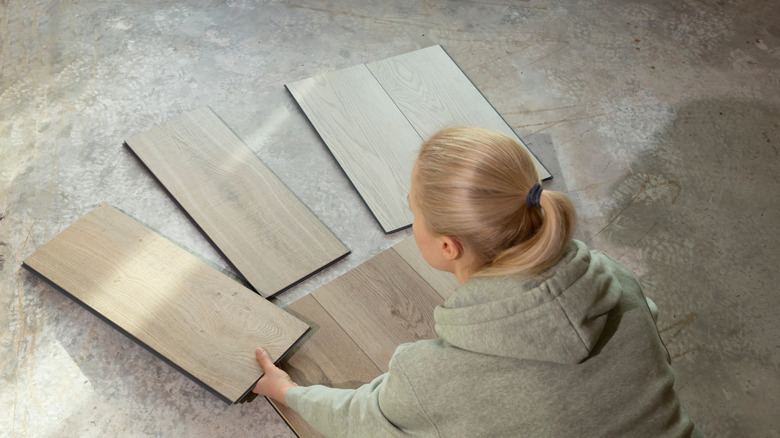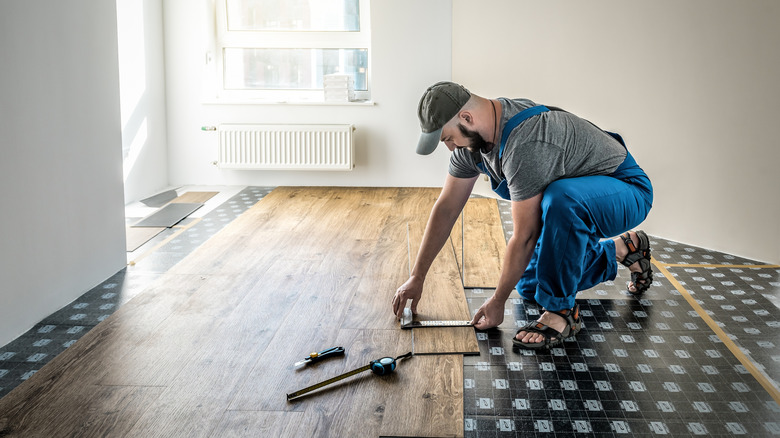How To Choose Slip-Resistant Vinyl Flooring Without Compromising Style
While you may love the look of vinyl flooring, its variety of styles, and the budget-friendliness and durability that it provides, you may be unsure about whether you should use it in certain areas of your home, since most vinyl offers little slip-resistance. It's often a good idea to choose non-slip bathroom floor materials or put in extra effort to prevent falls in the garage. The wrong flooring can leave you unprotected and can be particularly problematic if there are children or seniors in the home. While it may not seem like the ideal choice at first glance, vinyl flooring can be better-suited to areas where you need slip-resistance than you may realize. There are a few options available that allow you to get the benefits of vinyl flooring, such as visual appeal, while also ensuring safety and slip-resistance. But how do you choose the right one for you?
Perhaps the best option for keeping your vinyl flooring slip-resistant without compromising style is to make your floor less slippery with different finishes. Adding certain additives to a vinyl floor can help provide texture and prevent slipping. These additives can be useful if you have an existing vinyl floor that you would like to improve the safety of, but they can also be an option if you're installing vinyl floors in a new location.
Aside from this, however, one of the other options is to look for textured vinyl flooring. Textured vinyl options will do much better at preventing slipping than the standard options available, while remaining stylish. You should also look out for vinyl flooring with a slip-resistant certification and rating. There are many slip-resistant vinyl flooring options that are visually-appealing, and can suit a variety of preferences.
Factors to consider when choosing slip-resistant vinyl flooring
To choose textured, slip-resistant vinyl flooring, there are a variety of factors to keep in mind. One of the most important things to consider is the level of slip-resistance the flooring has. This is measured by the "R" rating that may range from R9 to R13, with R9 providing the lowest amount of slip-resistance and R13 providing the highest. Think carefully about the rating and characteristics to pick the best floor materials if you spend a lot of time on your feet, and consider the location of the flooring installation as well. The thickness of the flooring should also be taken into account. The thicker the vinyl flooring is, the more durable it will be. Thicker vinyl will also provide more comfort and insulation.
The maintenance needs of vinyl flooring should also be considered. Some vinyl floors will need to be maintained more than others. If you've applied a slip-resistance coating to vinyl flooring, you may need to reseal it from time to time. Finally, you'll also want to consider the cost of the vinyl flooring and its installation. These costs can vary greatly, so be sure to compare options and shop around to get the best deal while ensuring you get the style, functionality, and quality you need.

